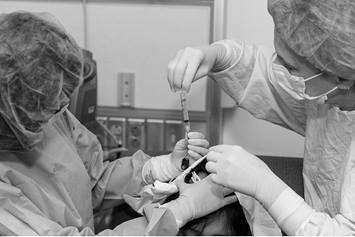Batten Disease
Also known as Spielmeyer-Vogt-Sjogren-Batten disease, Batten disease is the most common form of a group of disorders called neuronal ceroid lipofuscinoses (or NCLs).
What is Batten Disease?
Also known as Spielmeyer-Vogt-Sjogren-Batten disease, Batten disease is the most common form of a group of disorders called neuronal ceroid lipofuscinoses (or NCLs). Although Batten disease is usually regarded as the juvenile form of NCL, it has now become the term which encompasses all forms of NCL. Batten disease is a congenital, progressive, and terminal neurological disease. Patients with Batten disease have cognitive impairment, loss of developmental milestones, and epilepsy. Sight and hearing may also be impaired.
Batten Disease Center of Excellence
In 2010, Nationwide Children’s was designated a Center of Excellence by the Batten Disease Support and Research Association (BDSRA), the largest research and support organization in North America for families that have children with Batten disease. Chosen because of its clinical and research history with the disease and its ability to provide comprehensive care for these unique children, Nationwide Children's is one of only a handful of organizations in the U.S. with this designation.


